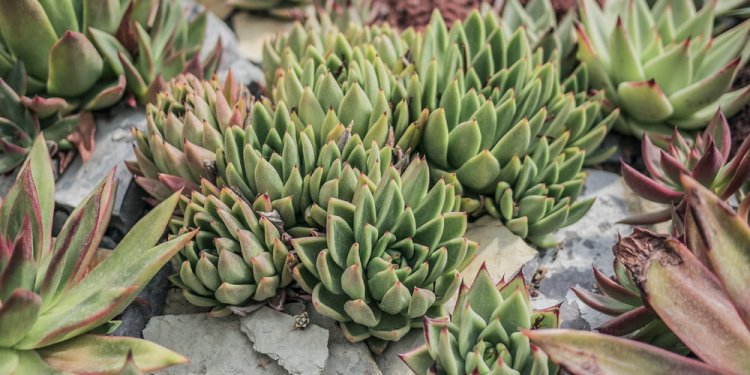The FINANCIAL — A South Korean national was sentenced today to 24 months in federal prison for attempting to illegally export to Asia live Dudleya succulent plants worth at least $150,000 that he and his co-schemers had pulled out of the ground at remote state parks in Northern California.
Byungsu Kim, 46, was sentenced by United States District Judge George H. Wu, who also ordered him to pay $3,985 in restitution to the State of California for expenses related to replanting the stolen plants after his arrest. Kim pleaded guilty in September 2021 to one count of attempting to export plants taken in violation of state law.
On October 11, 2018, Kim and co-defendants Youngin Back, 47, and Bong Jun Kim, 46, traveled by car from Los Angeles International Airport to Crescent City, California. From October 14 to October 16, Kim and the co-defendants harvested numerous Dudleya plants from DeMartin State Beach in Klamath, California, and from Del Norte Coast Redwoods State Park.
Kim knew the taking of the Dudleya plants was unlawful. He had conducted internet searches on his smartphone for “poaching succulents” and “dudleya” and had read a press release regarding the arrest and convictions of three other Dudleya poachers.
On October 22, 2018, Kim and the co-defendants traveled from Northern California to a nursery in Vista and unloaded the Dudleya plants that they had poached during the previous week. The following day, the men traveled to Russian Gulch State Park in Mendocino County, where, wearing backpacks and using hand-held radios to communicate, they pulled additional Dudleya plants out of the ground before returning once again to the Vista nursery.
Prior to the plants’ shipment, Kim scheduled an inspection with a county agriculture official at the Vista nursery and falsely told her the government-issued certificate necessary for the plants’ exportation should list 1,397 Dudleya plants (259 pounds/117.5 kilograms) for export to South Korea and that the “place of origin” of the plants was San Diego County.
The defendants then transported the plants to a commercial exporter in Compton, to whom Kim intended to present the fraudulently obtained certificate so the Dudleya plants could be smuggled to South Korea. When the defendants left, local law enforcement executed a search warrant at the cargo shipping company and found 3,715 Dudleya plants in boxes that were labeled “Rush” and “Live Plants.” These were the plants the defendants had pulled out of the ground from public lands in Northern California.
At the time that Kim and the co-defendants engaged in the illegal conduct, they did not have a scientific permit nor a federal permit that would allow them to harvest Dudleya plants. Kim also admitted to being the scheme’s organizer.
Although California law enforcement officials had confiscated Kim’s passport following his arrest on state charges relating to his October 2018 conduct, Kim fraudulently obtained a new South Korean passport in January 2019 by falsely claiming to the South Korean Consulate in Los Angeles that he had lost his passport.
In May 2019, soon after Kim learned of the federal criminal charges pending against him in this case, he and Back fled to Mexico on foot through the Tijuana-San Ysidro border crossing. Using his fraudulently obtained passport, Kim then flew with Back from Mexico to China, and then flew from China to South Korea.
Kim was arrested in South Africa in October 2019 for charges related to a similar scheme in which he illegally collected plants from protected areas in that nation to export to South Korea. Kim pleaded guilty to the criminal charges in South Africa and was extradited to the United States in October 2020 after spending a year in custody there. He has remained in federal custody since October 2020.
“[Kim’s] willful criminal conduct in October 2019 was not an isolated event: he had carried out the same scheme repeatedly in California,” prosecutors wrote in a sentencing memorandum. “[Kim] had traveled to the United States more than 50 times since 2009. Customs records show that he was travelling for succulent-related purposes and often with tens of thousands of dollars in cash (sometimes declared, sometime not) and fake phytosanitary certificates.”
Bong Jun Kim pleaded guilty in July 2019 to one count of attempting to export plants taken in violation of state law. He served four months in federal custody and was released in October 2019 after Judge Wu imposed a sentence of time served.
Back remains a fugitive.
The California Department of Fish and Wildlife, the United States Fish and Wildlife Service, Homeland Security Investigations, U.S. Customs and Border Protection, San Diego County’s Department of Agriculture, Weights and Measures, the U.S. Department of Agriculture, and the California State Parks investigated this matter. The Justice Department’s Office of International Affairs provided significant assistance in securing the defendant’s extradition from South Africa.

































Discussion about this post